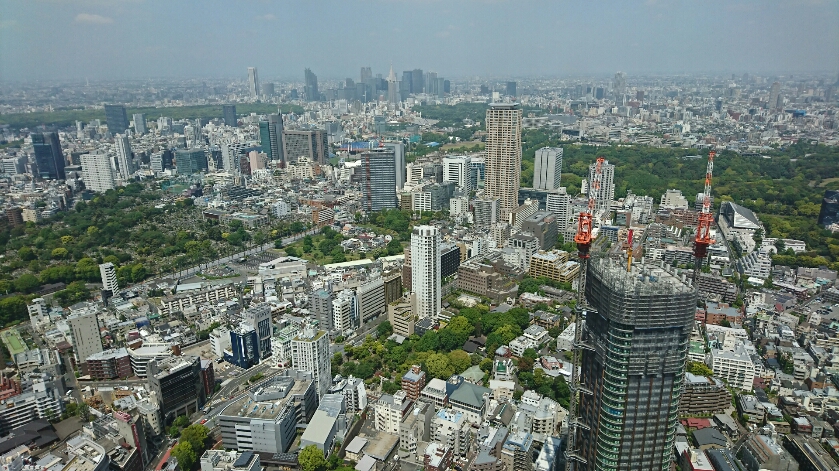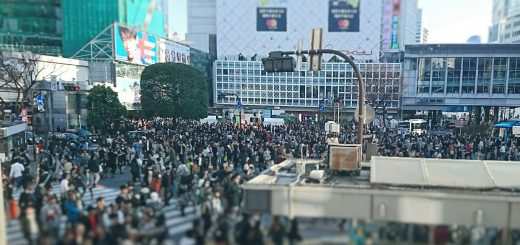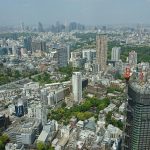My note about the Tokyo Olympics
The Tokyo Olympics 2020 closed on August 8, 2021, and the Paralympics will begin on August 24, 2021. This is a very rare Olympics that was postponed for a year due to the spread of COVID-19. Since I don’t think the Olympics will be held in Japan for a while, I would like to summarize this Tokyo Olympics as my memo.
Status of the COVID-19 in Japan
In March 2020, the Tokyo Olympics were postponed for one year due to the global spread of the COVID-19. one year later, in 2021, new variant of coronavirus is still appearing one after another, and the infection situation has not settled down at all. Vaccinations have started in various countries, but Japan started a little later than the US and Europe, and vaccinations for the elderly started in spring.
State of emergency
A state of emergency was declared time and time again in Tokyo, every time the infection spread. Unlike the lockdowns in Western countries, emergency declarations in Japan are not enforceable. The government requests people not to go outside and asks restaurants refrain from serving alcohol beverage. Although cooperation money and employment adjustment subsidies were issued, some stores in the food and beverage industry go bankrupt.
At first, voluntarily, many people followed the government’s and local governments’ requests for self-restraint, but the prolonged requests have exhausted people, and the number of stores and people, which do not follow the requests, is increasing. In addition, as the same requests are repeated over and over again, more and more people have become accustomed to emergencies and think that it is no problem to go out if it’s sometimes.
This post is about characteristic Japanese way of thinking behind the fight against coronavirus infections ↓
Medical system
Medical personnel have been battling the coronavirus for the past year and a half, and people are grateful to them.
I also learned that Japan’s medical system is not well equipped to deal with an infectious disease pandemic. In normal times, Japan’s medical system is very generous, with universal health insurance, we pay only 30% fee, and you can get immediate treatment for illnesses at your local clinic or community hospital.
However, many of them are small and medium-sized private clinics, and there are not so many large hospitals that are equipped for serious illnesses or have enough beds. The number of hospitals that can treat people with COVIV-19 infections is small compared to other countries, and the medical system for emergencies is very weak.
Each prefecture is making efforts to secure hospital beds and those with minor illnesses are being treated in hotels or at home, but I have realized that the situation will not change anytime soon unless we create a system to prepare for emergencies, including legislation and subsidies. Unfortunately, the government could not change this situation for this a year and half. Many people feel this way, but the government has not been able to take firm action even now. I am sure that there are various medical systems and they have interests, which cannot be easily overcome. Easier said than done, I guess. This is Japan!
Vaccines
If we can’t legally lock down, or change the medical system in case of emergency, the only thing we can do is to increase vaccinations. In Japan, the elderly, who are more susceptible to serious diseases, are vaccinated first, and more than 80% of them have already been vaccinated twice. Initially, there were fears that the pace of vaccination and the establishment of a system would be slow, but in addition to vaccination at local governments, vaccination at workplaces has been conducted, and uptake has progressed, and now more than 30% of the entire population has been vaccinated twice. Because of the progress in vaccination of the elderly, the percentage of the elderly among the severely ill has dropped considerably under the state of emergency declared in June, and the number of deaths has also decreased considerably.
Although vaccination is progressing, the speed of vaccination has slowed down considerably since the beginning of June due to insufficient supply of vaccine, and the number of people who want to be vaccinated but cannot is increasing considerably, including the working age and younger generations. In such a situation, the Delta strain and the Olympics have arrived.
Delta variant
In July, just as the Olympics were about to begin, the highly contagious delta strain, which has been increasing in number around the world, arrived in Japan. The pace of vaccination had slowed down, and the number of infected people was gradually spreading again. On July 12, a fourth emergency state was declared in Tokyo. All the people were surprised and puzzled by the declaration of the state of emergency just before the Olympics. The number of infected people in Tokyo has been increasing throughout the Olympics, from less than 1,000 people a day when the emergency was first declared to 5,000 now, and the number of seriously ill people is at an all-time high. The state of emergency has been extended until September.
Until the Olympics
In March 2020, the Tokyo Olympics were postponed for one year due to the global spread of the new coronavirus. Although the infection was spreading worldwide, the number of people infected in Japan at that time was only about 200 people per day in Tokyo at most, and it was still at the beginning stage. We extended the period for one year with the hope that the pandemic would be under control by next year.However, the situation has continued to worsen.
In March 2021, due to the global spread of the coronavirus, we gave up accepting spectators from overseas, based on the infection situation at that time (around 500 people infected per day in Tokyo) at the end of June, we set the maximum number of spectators at 10,000.
However, in July, the number of infected people in Tokyo increased to nearly 1,000, and on July 12, the state of emergency was declared again, and for the first time in history, the Tokyo Olympics were held without spectators. Incidentally, since other professional sports remain open to spectators, it can be said that the Olympics were treated in a special way. With no spectators, the economic burden on Japan became even greater…
The postponement of the Olympics by one year has created an additional year of adjustment for the athletes, which must have been difficult. In addition to spectators, the management of the Olympics has also been in trouble for the past year, with the dissolution of the opening ceremony production team and the replacement of the President of the Olympic Organizing Committee due to his inappropriate comments. This turmoil continued until July, just before the opening of the Games, when the people in charge of the music and the director of the opening ceremony resigned or were dismissed one after another due to their past problematic comments.
With the spread of the coronavirus, public opinion was divided as to whether the Olympics should be held or cancelled. My impression is that most people were negative.
- If there are no spectators, it is surely okay to hold the Olympics.
- Wouldn’t the flow of people increase even if there were no spectators?
- There are people who are suffering from the effects of the coronavirus, such as the restaurants that have been asked to close and the medical professionals who are receiving coronavirus patients on a daily basis. Should the Olympics be held in this situasion?
- The Olympics will take up a lot of medical resources. Shouldn’t we put more effort into fighting coronaviruses?
- We should support athletes who are working hard for this once-in-four-years chance.
I had the impression that the mass media often reported the voices of the opponents as well as the status of coronavirus infection. Some of the naysayers attacked the athletes on social media, asking why the athletes didn’t insist that the Olympics should be cancelled. It seemed that there were many athletes who were struggling with the idea of participating in this event under such circumstances.
In spite of such a situation, athletes arrived one after another from overseas, the Olympic Organizing Committee focused on countermeasures against infectious diseases, and neither the national government nor the Tokyo Metropolitan Government canceled the Games, and on July 23, the Blue Impulse flew over the Tokyo sky to depict the symbol of the Olympics. The Tokyo Olympic had started.
The Olympics and Beyond
The Olympic Games began with a variety of slogans, including diversity and harmony, reconstruction, safety and security and united by emotion. As expected, the opening and closing ceremonies were not well received because of the constant changes in the staging team, but once the games started, the whole country easily went down the Olympic mode, and the mass media was in Olympic mode, broadcasting the games that were attracting attention in Japan every day on TV.
The negative mood was swept away as people wrote enthusiastically about the Olympics on social media, cheering for the athletes. There were many Japanese comments such as, “I was against the Olympics, but the athletes gave me courage. I’m glad we did it”. This is what Japanese people are all about, being carried away by the mood.
People gathered around the National Stadium, the venue for the opening and closing ceremonies, even though they couldn’t go inside to see them, and there were also people cheering for the cyclists, marathon runners, and other outdoor games along the roadside. Since it is a Corona disaster, people are basically encouraged to watch the games on TV, but the crowds still turn out. Since the almost events are held with no spectators, there were a lot of people watching the games on TV, and I’m sure that had a big impact on decrease in number of people going out, but I also think that there were people who thought that it was okay to go out because the Olympics were going on.
A lot of athletes were active, but there were also many who talked about the difficulty of continuing to practice and the guilt of participating in the games while public opinion was negative due to the Corona disaster. There is absolutely nothing wrong with athletes, so I am sorry that Japan as a whole has driven the Olympics into a state of denial.
With the exception of a few venues, there were no spectators, so there was not much of a sense that the Games were being held in our hometown, and in that respect, the Games may have lacked excitement. It was impressive to see athletes from all over the world working hard and expressing their gratitude for the event that is held under the pandemic.
Initially, the concept of the Olympics was to symbolize the recovery from the Great East Japan Earthquake 10 years ago and the recovery from the pandemic, but it turned out to be held in the middle of the corona disaster. With no spectators, a one-year postponement, and infectious disease control measures, the economic benefits to Japan will be much less, and the cost will be covered from the people’s taxes. The costs and burdens of the Olympics were quite high, including medical resources and expenses. But anyway, many of us received courage and hope from the athletes who worked hard in the midst of the corona disaster, so the concept,”united by emotion” may have been a bit of a success. I think it was a good thing that Japan was able to deliver hope and positive news to the people of the world, even if only a little.
My personal impressions
Looking at the movements of the IOC, the JOC, and the Japanese government since the beginning of this year, I thought that the Olympics would probably be held, so I was not opposed to the holding of the Olympics itself, but I was wondering how they would manage the event while taking measures against corona. Will the Olympics really be held? How will it be held? I’m sure the people wouldn’t have complained so much if they had known the policy earlier, but it’s difficult.
I have always liked watching sports, and I had won tickets to the Tokyo Olympics, so I was very disappointed that, as expected, there were no spectators and I had to watch the games on TV. But it was enough for me to get power from olympians working hard, winning, and challenging myself. Even more so when I think of thier effort it took to get here and the bashing in this pandemic.
I think it must have been really hard work to run this tournament. The opening and closing ceremonies were quite different from what I had envisioned for the Rio 2016 closing ceremonies, due to the hardships and scandals, but I think it could not be helped this time. I watched the various competitions on TV, and I imagined how difficult it must have been to set up each venue according to the Olympic standards, to run the event on the day, and to see the efforts of the staff and volunteers behind the glamorous competitions.
What was most disappointing was that public opinion had become so divided that Twitter had become a world of hatred and criticism, and just watching it was disheartening. I can understand why people are wondering if the event should really be held, considering the medical staff and the restaurants that have been asked to stay away from work, but I think it’s wrong to attack the athletes in social media. Can’t we think more about other people’s feelings? Despite this, once the Olympics start, we are inundated with tweets of joy and sorrow over the daily games and thanks for the excitement. The social media is a strange and scared. Unfortunately, I feel more and more people cannot care about others due to this pandemic.
I think it is important to think about what the Olympics, which were held in the midst of controversy due to the corona disaster, meant to Japan and how we can use this experience as a legacy. Japan is no longer in a strong position, but I hope that something good will come out of it.
The new coronavirus infection in Tokyo shows no signs of being under control, and the medical system is on the verge of collapse, with an increasing number of people receiving treatment at home.
The Paralympics will start on August 24, and like the Olympics, it has already been decided to be held without spectators.

Japanese OL. (OL means “office lady”. Women who work in offices.)
I was born in a rural part of the Kanto area in the latter half of the 1980s. I live and work in Tokyo now. I live with my husband. I study English by writing this blog!








